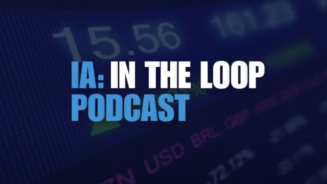How much time does Edward Bonham Carter spend at the business these days?
He does four days a week as executive vice-chairman. I spend a lot of time with him talking about strategy for the UK or internationally. He does a lot of work for us in terms of appearances at conferences and client and press events, but he has stepped away from the day-to-day management of the business. That is left to Maarten, who I report into, and his executive.
How are you positioned on fees in relation to your peers?
We are competitive across our unit trust and Sicav range. Our Sicavs might be slightly more competitive in an absolute sense. There is also the question about value for money. If you look at the percentage of our funds that outperform over three years, it is an impressive 73%. On a straight peer-to-peer comparison, our pricing is competitive.
We are always looking at this issue, considering what makes sense and responding to the pressures in the market by listening to our investors and distributors. We are on a journey as an industry. If you think about what happened with pricing in the UK post-RDR, and then you look at what is coming down the line, you can see Sicavs are going to have to go through a lot of change in terms of the nature of the share classes and where the assets are going.
What impact does your corporate governance approach have on distribution?
Without shouting it from the rooftops, Jupiter has been a leading player in this space.
Ian McVeigh, who runs our corporate governance, is embarking on an additional programme of engagement between our fund managers and the chairs of the organisations we buy. That is above and beyond the regular management meetings we would have with companies we are looking to buy or which we hold.
We are having conversations right now with institutions with whom other fund managers would find it hard to credibly have that conversation and, as this becomes a bigger and bigger agenda, it supports that.
It opens doors that might not previously have been open to us, and our Emirates mandates are good examples of that.
What are your key business goals over the next few years?
The main ones will be institutional consolidation of territories we are already in and extending from private banking into retail.
If you have different types of clients who think differently and buy at different points of the cycle, that creates a much more robust business and that is what we are trying to build, step by step, day by day on a broadly international basis.
While the UK is critically important to us, it is about how we continue to maintain our share and our engagement of this market while simultaneously extending by channel and by geography.
Biography
Nick Ring joined Jupiter in 2015 as global head of distribution. He is responsible for defining the distribution strategy for the firm while overseeing and co-ordinating the activities of sales, marketing, client services, product and PR. He is a member of the executive committee.
He has 27 years of experience in the investment industry across a variety of distribution, product, strategy and general management positions.
He joined Jupiter following a seven-year career at Columbia Threadneedle, where he worked in various product and distribution roles before becoming global head of product in 2014, a position he held while also chairing the client and distribution services committee.
He joined the company from Northern Trust where he held various roles, including managing director and chief operating officer, global investments international, and, latterly, managing director and head of international wealth management.
Ring also worked at KPMG, GartmoreFund Managers and Prudential earlier in his career.




